Search Results
Showing results 1 to 20 of 135
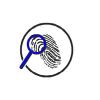
Latent Prints
Source Institutions
In this activity, learners examine fingerprints. Learners leave a hidden print on a surface and then make their own print detecting powder from graphite (found in pencils).
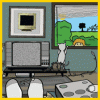
Screen Time
Source Institutions
This game asks you a series of questions about how much time you spend in front of a screen, not being active.
Trading Places: Redox Reactions
Source Institutions
Visitors add drops of copper sulfate solution onto a steel nail. They observe the nail change color from silver to brown as the copper plates onto the nail.

Soap: Sometimes oil and water do mix!
Source Institutions
In this activity (on page 2 of PDF), learners mix oil and water. Then, they add soap and observe what changes! The activity demonstrates how oil and water don't mix, except when soap is added.
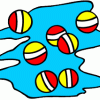
Density: Make a golf ball float!
Source Institutions
In this activity (on page 2 of the PDF), the learner places a golf ball between salt water and colored fresh water. The golf ball is not as dense as the saltwater.
Currently Working: Testing Conductivity
Source Institutions
Visitors test solutions of water, sugar, salt, and hydrochloric acid and the solids salt and sugar. They clip leads from the hand generator to wires immersed in each substance.
Forwards and Backwards: pH and Indicators
Source Institutions
Visitors prepare six solutions combining vinegar and ammonia that range incrementally from acid (all vinegar) to base (all ammonia).
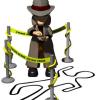
Setting the Scene
Source Institutions
In this activity (on page 2), pairs of learners create an imaginary crime scene. One person leaves the room while the other person moves a few things around.
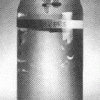
Divers
Source Institutions
Learners experiment with a 2-liter plastic bottle containing water and four “divers." The divers consist of open, transparent containers with the opening points downward.
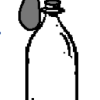
Gas Production: Blow up a balloon!
Source Institutions
In this classic reaction, learners baking soda and vinegar in a soda bottle to produce carbon dioxide (CO2) gas. This gas inflates a balloon.
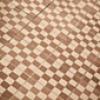
Twisted Tesselations
Source Institutions
In this activity (on pages 41-47 of PDF), learners explore tesselating geometric patterns (repeated shapes, similar to the art of M.C. Escher).
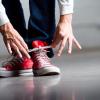
Robot Hands
Source Institutions
This activity (on page 2) explores how sensing is part of robotics. Learners try tying their shoes with different constraints.
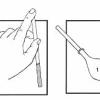
Odors Aloft
Source Institutions
Learners smell balloons filled with different scents to guess what's inside. From this, they infer the presence and motion of scented molecules.
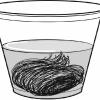
Kool Colors
Source Institutions
Learners investigate how temperature affects the rate of chemical reactions by observing how steel wool reacts with various types of Kool-Aid solutions at different temperatures.
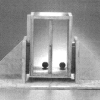
Bounce vs. Thud Balls
Source Institutions
Learners compare the properties of two balls that appear identical. One ball bounces, while the other ball "thuds." The “bounce” ball is made of the polymer polybutadiene (-C4H4-).
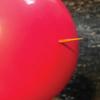
The Unpoppable Balloon
Source Institutions
In this activity, learners explore polymer structure and their ability to reform around objects by attempting to stab a wooden skewer through a balloon without popping it.
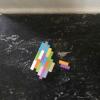
Brick Drop Challenge
Source Institutions
In this design challenge, leaners attempt to build a strong structure out of LEGO® bricks that can withstand a 4-foot drop.
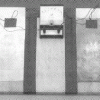
Human Battery
Source Institutions
Learners place their hands on different metals and use an ammeter to monitor the flow of electricity from one metal to another.

Make a Totem Pole
Source Institutions
In this activity (on page 2 of PDF), learners make their own totem poles out of recycled materials.
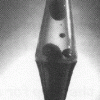
Lava Lamps
Source Institutions
Learners observe working lava lamps to understand how they work (included in PDF link).
